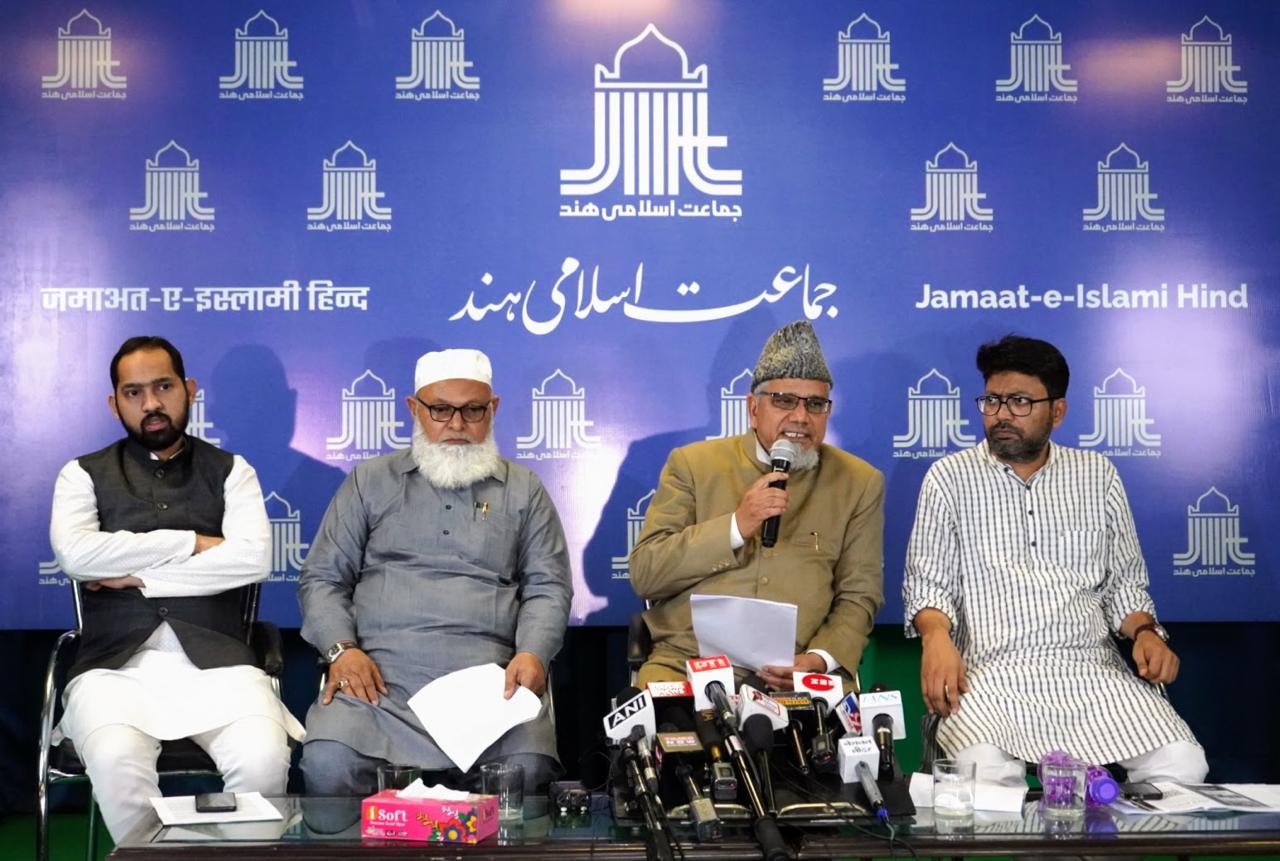Muslim organisations express deep concern over 12 lynchings since Lok Sabha elections

By Muslim Mirror Staff
India’s leading Muslim organisations, Jamaat-e-Islami Hind and Jamiat Ulama-i-Hind, have expressed deep concern over the alarming rise in violence against Muslims, especially after the Lok Sabha elections. There are reports of lynchings and destruction of buildings targeting Muslims across the country.
Twelve cases of lynching have been reported so far, including four cases of non-Muslims, since the Narendra Modi-led NDA government began its third consecutive term.
The Muslim organisations have expressed their concern and demanded immediate action from the government. They have demanded a statement from Home Minister Amit Shah and the enactment of special laws to combat lynchings and other hate crimes against Muslims.
Addressing a press conference, Prof Salim Engineer, Vice President of Jamaat-e-Islami Hind (JIH), said, “Since the announcement of the 2024 Lok Sabha elections, there has been a disturbing rise in communal violence, lynchings and vandalism. Most of the cases have been reported from states like Chhattisgarh, Uttar Pradesh, Gujarat, West Bengal, Telangana, Odisha and Rajasthan. Many of these followed substantiated allegations of cow slaughter.
Prof. Salim Engineer also expressed concern over the recent changes in the Indian criminal justice system, where the Indian Penal Code (IPC) and Code of Criminal Procedure (CrPC) were replaced by the newly enacted Bharatiya Nyay Sanhita (BNS) and Bharatiya Nagarik Suraksha Sanhita (BNSS) Acts. Addressing the JIH’s monthly press conference, he said that simple amendments to the IPC, CrPC and Evidence Act would have been more appropriate than rewriting the entire laws. The laws were passed in December 2023 without proper discussion in Parliament, while many opposition members were suspended. While the government claims to have abolished the old sedition law, a new, stricter section has been introduced, which is similar to the old sedition law.
Nadeem Khan, secretary of the Association for Protection of Civil Rights (APCR), highlighted the potential for more corruption and discrimination under the new laws. He pointed out that police discretion in registering FIRs for crimes punishable by 3 to 7 years in prison could make it difficult for marginalized communities to file FIRs. In addition, the new laws allow police to seek detention for up to 15 days within a 60-90 day period, potentially leading to longer detentions and abuse of power. Khan warned that these changes could lead to a “police state” where “jail becomes the rule” and “bail the exception.” APCR plans to approach the Supreme Court against the draconian aspects of these laws.
Khan also expressed deep concern over the increase in violence, lynchings and destruction against the Muslim community after the Lok Sabha elections. Presenting an APCR report chronicling hate crimes and targeted killings of Muslims, he urged both the BJP and Congress state governments to take decisive action against these heinous acts. He urged the INDIA Alliance and Opposition MPs to raise these issues in Parliament.
On July 4, Maulana Mahmood Asad Madani stressed to the Board of Directors of Jamiat Ulama-i-Hind that the country cannot be built on hatred. He condemned the increasing lynchings and the spread of propaganda against the Muslim community, calling them detrimental to the fabric of the country and its international reputation.
Mahmood Madani highlighted the worrying rhetoric of those in positions of responsibility targeting the Muslim community with statements such as “ziyada bacha paida karte hain” (they are producing more children) and “ghuspathiya” (infiltrators), and described it as against the national interest to target such a large section of the population.

:max_bytes(150000):strip_icc():focal(994x365:996x367)/sara-michelle-gellar-shannen-doherty-020624--5482437595ce42ceaed818b32e78f3bb.jpg)

